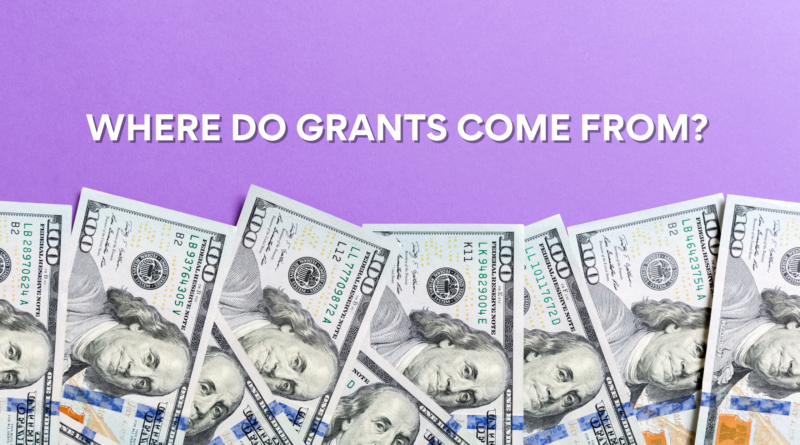Where Do Grants Come From?
We often hear a lot about grants, but have you ever wondered where exactly do grants come from? A grant is a financial donation from an entity to support projects that align with its mission. Thus, the organization that awards these funds is referred to as the ‘funding source’ or ‘grant maker.’
There are three primary funding sources:
- Government bodies — Federal, state, and local governments.
- Foundations — Private foundations, public charities or philanthropic organizations.
- Corporations — For-profit businesses.
Government grants come from tax collections and budget allocations. Subsequently, grants from the federal government are authorized and appropriated as bills passed through official channels. Approximately 61% of government grants are dedicated to health care, along with 16% for income security programs and 9% each to transportation and education, training, employment and social services. One popular example of a government grant is the Pell Grant. This grant helps support education costs for undergraduate college students.
Foundations receive funding through donations, wills & bequests, fundraising, earned income and memberships. Accordingly, foundation boards of directors are ultimately responsible for foundation decision-making regarding grant funding. This usually includes decisions such as grant funding allocation. However, if a benefactor stipulates the intended purpose of a donation made to a foundation, funding should be directed toward the cause the benefactor is passionate about. A popular example of a foundation grant is the Research Scholar Grant by the American Cancer Society.
Corporate grant funding is part of a company’s budget. These grants are part of the company’s efforts to build and maintain a positive reputation and remain in good standing with the community. For example, corporations seek to fund projects or programs that align with their corporate image and/or mission. A popular example of a corporate grant is the FedEx Small Business Grant, which consists of a contest format that awards unique and innovative small business models.
What happens when you receive a grant?
Grants aren’t just ‘bestowed’ – you must apply for them. Getting a grant is also an extremely competitive process and there is never any guarantee you will win a grant (or grants) to which you apply. Furthermore, the paperwork can be complex. Applicants must describe in detail how the funds will benefit the local community or the public at large. Crafting a convincing proposal can be a daunting task. Oftentimes, applicants will hire the professional assistance of a grant writer or consultant to navigate the procedures and requirements of a formal grant application.
To receive grant funds, your organization will ‘contract’ with the grant maker to meet the guidelines & objectives of the stated purpose of the grant. Though many consider grants to be “free money,” the reality is these funds often have a series of conditions attached to them. The grant conditions will be the ‘terms’ of the ‘contract.’ As a result, your organization will have a legal obligation to comply with those terms. Additionally, failure to abide by these conditions may result in the grant being rescinded. You may even face legal action.
Examples of conditions may involve things like:
- Establishing a separate bank account to manage the funds
- Regularly report on how you spend the grant money
- Communicate projections and note accomplishments and milestones reached
- Clarify what you must do with any unspent funds
- Meet any insurance, confidentiality and privacy requirements
- Determine how often you will report to the grantmaking organization
- Provide regular reports and audits upon request
Where can you find grant funding?
The majority of grants are for nonprofits, government agencies, municipalities and townships, as well as schools, IHEs (Institutions of Higher Education) and students. There are also grants available for small businesses and other individuals (such as artists, researchers and teachers), but these grants make up less than 30% of all available grants.
While locating government grants can be easy, it can be quite difficult to locate foundation and corporate grant opportunities. Up to 90% of foundations don’t publicly list their grants. What’s unique about GrantWatch.com, is that its grant listings include all funding sources – likely saving you days, weeks or even months of research! More than 70% of the GrantWatch database includes grants from foundation and corporate funders. The remaining 30% of grants are from government sources.
5,000+ grants are currently accepting applications from nonprofit organizations, schools and municipalities.
1,000+ grants are currently accepting applications from small businesses (for-profits).
1,500+ grants are currently accepting applications from individuals (including researchers, scientists, artists, students, teachers and veterans).
Upgrade to a MemberPlus+ subscription to view full grant details, including eligibility criteria and application information. For more information, you can also visit the GrantWatch FAQ page, and to see the great value with the top 20 GrantWatch features, click here.



You can view our International Grants here https://international.grantwatch.com/